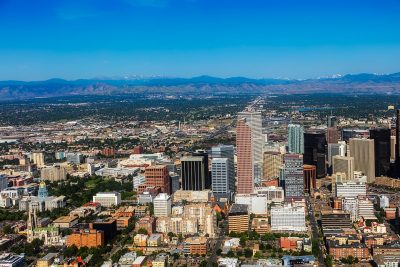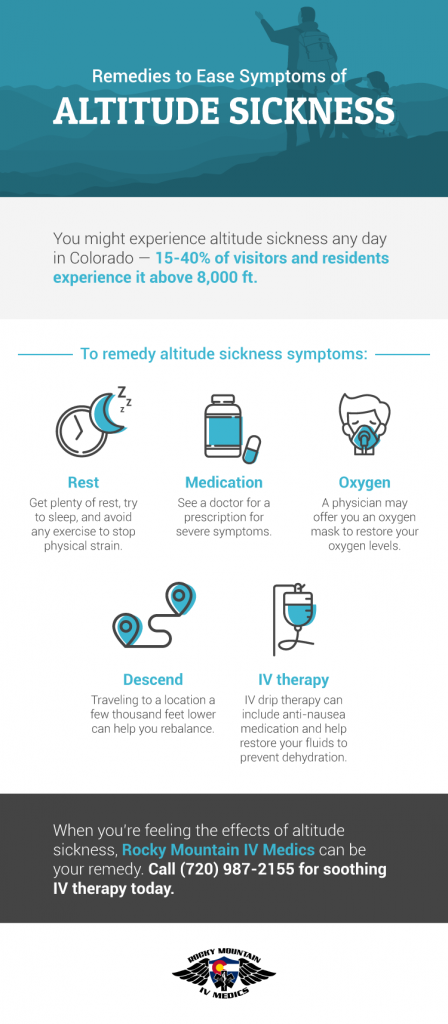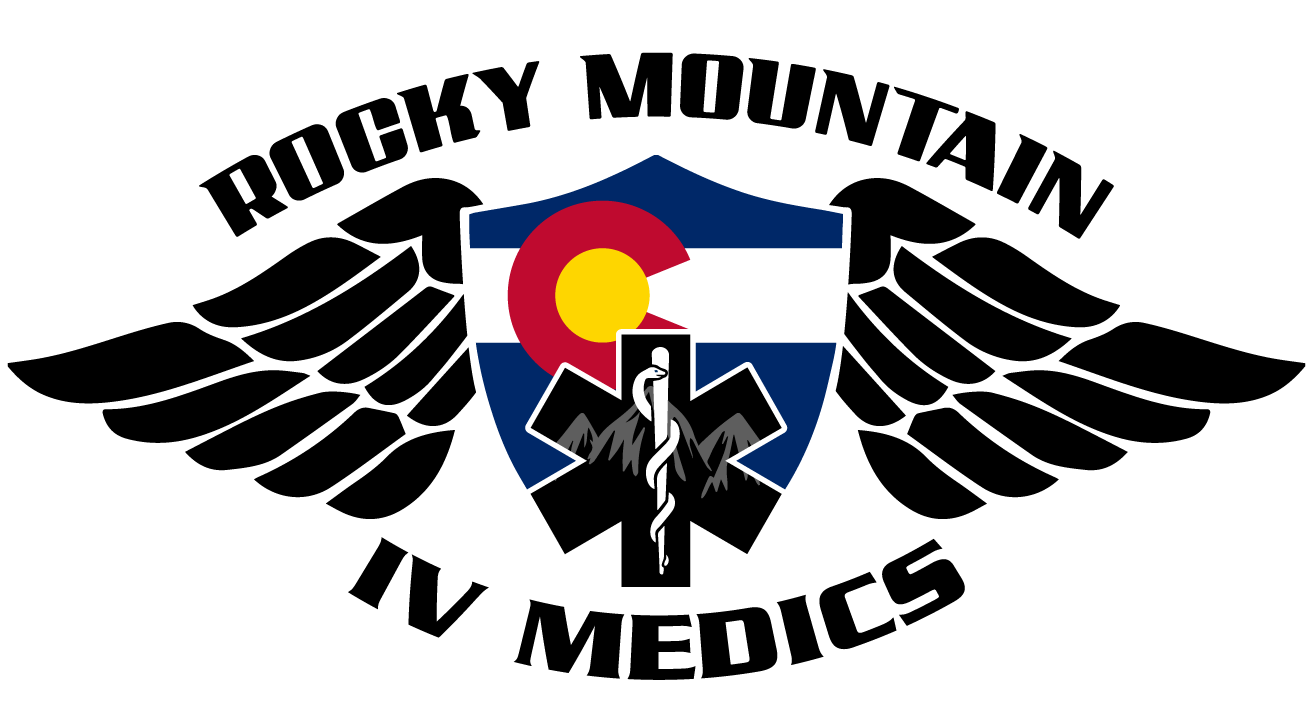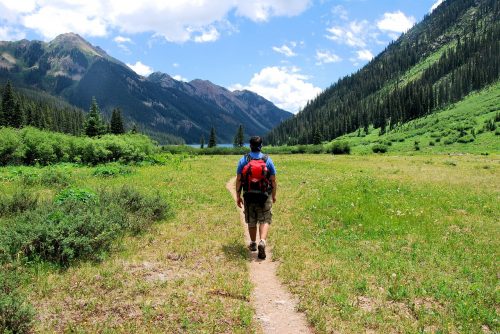Denver Altitude Sickness: Symptoms, Prevention & Remedies

Survive Cold & Flu Season: Your Ultimate Guide
January 22, 2020
Dehydration Signs: Recognizing the Symptoms & What to Do
February 20, 2020Denver Altitude Sickness: Symptoms, Prevention & Remedies

Table of Contents
- What Causes Altitude Sickness?
- Common Symptoms of Altitude Sickness
- Remedies to Ease Symptoms of Altitude Sickness
- IV Therapy for Altitude Sickness
The Denver, Colorado elevation is about 5,280 feet above sea level; there’s a reason it’s called the “Mile High City”! Adjusting to that altitude can cause trouble for visitors and new residents to the city, especially if they are on the go skiing, biking, hiking, or just generally being active in the thinner air. It’s not uncommon for people unused to higher elevation to develop altitude sickness.
Could you be suffering from altitude sickness due to the high elevation of Denver, Colorado? If so, what can you do about it? Find out the symptoms of altitude sickness and how to treat it.
What Causes Altitude Sickness?
The higher you go, the lower the oxygen levels get. When you breathe, your brain gets fewer oxygen molecules. If this happens suddenly, without gradually getting used to the rise in altitude, fluid may begin to accumulate in the brain and lungs. The Denver, CO elevation can definitely play a role in altitude sickness.
The official name for this condition is acute mountain sickness, or AMS. It can be mild, moderate, or severe, depending on the intensity of your symptoms. In rare cases at very high elevation, you may run the risk of high-altitude pulmonary edema (HAPE) or high-altitude cerebral edema (HACE). These extreme forms of altitude sickness lead to dangerous fluid buildup in the lungs and brain, respectively.
Your susceptibility to altitude sickness may rise depending on your:
- Age
- Weight
- Blood pressure
Existing heart or lung conditions can also contribute to the likelihood of developing altitude sickness. How long you stay at high elevation in Denver can impact the length of your sickness. The chances of developing altitude sickness are lower if you go to a higher altitude gradually, but this isn’t always possible when you take a plane trip to Denver, for instance.
Common Symptoms of Altitude Sickness
Does the elevation in Denver, Colorado leave you with a pounding headache? If so, you’re not alone. Symptoms often vary per person, but the most widely experienced side effect of altitude sickness is headaches. Since this is also a common dehydration symptom, drink plenty of water if you suspect you have altitude sickness.
Other common side effects include:
- Light-headedness
- Fatigue
- Rapid heartbeat
- Vomiting or nausea
- Becoming winded when performing light exercise
- Swollen hands and feet
Sometimes, symptoms become more serious, which could indicate fluid buildup in the lungs or swelling of the brain. Some of these symptoms include becoming unsteady on your feet, numbness of the limbs, and losing consciousness. If you’re feeling the effects of the Denver, Colorado elevation, you need to get help fast.

Remedies to Ease Symptoms of Altitude Sickness
If you feel ill from altitude sickness from the elevation of Denver, Colorado, there are steps you can take to feel better. Remedies that will ease your symptoms include:
Resting: Your body can become exhausted by the symptoms of altitude sickness and the physical strain. Take it easy as much as you can after diagnosis. Try to sleep and avoid standing up too much. Don’t attempt to do any strenuous exercise.
Taking pure oxygen: Your body needs oxygen to thrive, and if you go to a physician, they can offer you a mask with pure oxygen to breathe. This will help you rebalance and regain a clear head.
Receiving medication: A physician may prescribe you medication that can ease your symptoms.
Descending from altitude: Descending just a few thousand feet can help you feel better and get your bearings before returning to Denver. If you’re on a mountain slope and you start feeling symptoms of altitude sickness, it’s important to stop and descend immediately.
Getting an IV: If you have been throwing up, you need to replace the lost fluids in your body quickly. IV hydration will help you feel better almost immediately.
An IV infusion is often used by people who don’t respond well to the Denver, CO elevation. We help clients rebound from their symptoms quickly:
- Our mobile service is prompt and efficient, saving you the time and trouble of traveling to an urgent care center or hospital emergency room. We will come to your location in our service areas any day of the week, with availability for evening and weekend appointments.
- The many IV treatments we offer can be adapted for your altitude sickness symptoms by adding extra vitamins, minerals, or medications to your drip bag. Our team consists of medical professionals who can assess your symptoms and develop a targeted infusion plan.
- An IV infusion’s hydrating fluids are administered right to the bloodstream so they get to work quickly for faster symptom relief, compared to oral solutions that need to travel through the digestive system first.
And if you are concerned the elevation in Denver may not agree with you, there are some steps you can take to prevent altitude sickness. When planning a trip here, don’t hit the slopes as soon as you arrive. Instead, give your body a day to acclimate to the higher elevation. You’ll also want to stay well-rested during your visit so your body has a chance to recharge each night. And during the days, be sure to hydrate with plenty of water and eat healthy meals and snacks. Be aware of how the elevation in Denver, Colorado can trigger altitude sickness and prepare accordingly.
IV Therapy for Altitude Sickness
Wondering where to get an IV in Denver? We offer IV hydration for altitude sickness symptoms, with affordable pricing packages for our mobile service. Call or text us at (720) 987-2155 for more information, or fill out our online contact form.


